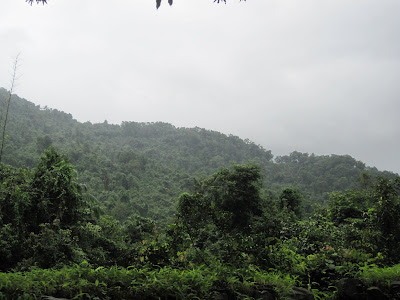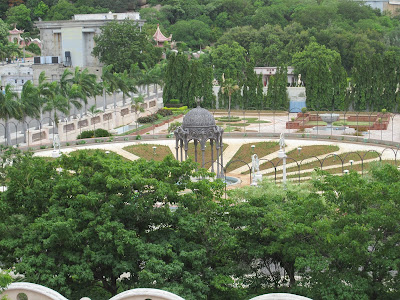The traveling to Goa and Hubli was definitely and adventure. It was a 2 hour plane ride from Hyderabad to Goa, then an hour and a hour car ride to the hotel. Then it was a 1 hour car ride to the beach. The beach was nice and the ocean very warm, which is a was strange for us being used to the Atlantic Ocean back home. Erin even had some fun getting an ankle bracelet and negotiating for the price!
Billy, David and Erin on a beach in Goa

Billy, David and Erin on a beach in Goa

The real crazy adventure was the extremely bumpy 5 hour car ride from Goa to Hubli. It was an extremely long ride but the views were amazing!

Then came the purpose of the trip, visiting the Deshspande Foundation. We met with Naveen, the CEO of the Deshpande Foundation and talked about our Assistive Technology program and our experiences with the Campus Catalyst Program at UMASS Lowell, through the Merrimack Valley Sandbox program.

We also visited Akshaya Patra, the worlds largest kitchen. Akshaya Patra feeds over 180,000 children in the Hubli area a day!

We also got a tour of Agastya International, which is a science center for children that also provide mobile science labs to schools far away from the main center.
 Erin got a short demonstration on gyroscopes using a large bicycle wheel.
Erin got a short demonstration on gyroscopes using a large bicycle wheel.
Traveling to Hubli was well worth it, but we found out there was a direct flight from Hyderabad to Hubli so we'll take that next time because it was two days of traveling.













